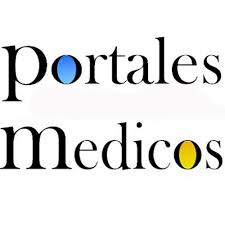Soporte nutricional en pacientes pediátricos críticamente enfermos, Hospital Universitario de Los Andes, 2017
Nutritional support in critically ill pediatric patients. Autonomous Institute University Hospital of The Andes, 2017
Resumen
Los pacientes pediátricos críticos tienen mayor susceptibilidad a la desnutrición durante su estancia intrahospitalaria, en períodos cortos de ayuno o de insuficiente aporte nutricional que provocan deterioro nutricional y alteraciones en el crecimiento a corto y largo plazo. Objetivo: Analizar el soporte nutricional en pacientes pediátricos críticamente enfermos del Hospital Universitario de Los Andes Mérida-Venezuela, 2017.Metodología:enfoque cuantitativo, tipo analítico, diseño no experimental de corte transversal. Se estudiaron 53 pacientes ingresados en la Unidad de Cuidados Especiales (UCEP) y en la Unidad de Cuidados Críticos Pediátricos (UCIP). Resultados: 52,8% femenino, edad 3,91 ± 4,97 años, 60,4% en el grupo de lactantes. 52,8% días de hospitalización de 1 a 7 días. Diagnóstico médico de ingreso: 26,4% por enfermedades gastrointestinales. 43,4% bajo la norma en el diagnóstico de crecimiento por talla. 94,3% de los pacientes tenían un soporte nutricional enteral; 86,8% no cumplió con el soporte nutricional indicado. En el soporte nutricional por medio de la prueba t de Student de muestras independientes se observa que en grasas se encontraron diferencias estadísticas (p=,003) y en carbohidratos (p= <,0,01). Se obtuvo deficiente adecuación nutricional de requerimiento calórico total (47,2%), proteínas (32,1%), grasas (39,6%) y carbohidratos (56,6%). Conclusiones: Se determinó un porcentaje moderado de pacientes que se encontraban bajo la norma en el diagnóstico nutricional por peso, diagnóstico nutricional por talla y de crecimiento por talla; los pacientes tenían en un alto porcentaje soporte nutricional enteral y un bajo cumplimiento del tratamiento nutricional indicado; se observó deficiente adecuación nutricional.
Critical pediatric patients are more susceptible to malnutrition during their hospital stay, during short periods of fasting or insufficient nutritional intake, causing nutritional deterioration and growth disturbances in the short and long term. Objective: To analyze the nutritional support in critically ill pediatric patients of the University Hospital of Los Andes Mérida-Venezuela, 2017. Methodology: quantitative approach, analytical type, non-experimental cross-sectional design. 53 patients admitted to the Special Care Unit (UCEP) and the Pediatric Critical Care Unit (PICU) were studied. Results: 52.8% female, age 3.91 ± 4.97 years, 60.4% in the infant group. 52.8% days of hospitalization from 1 to 7 days. Admission medical diagnosis: 26.4% due to gastrointestinal diseases. 43.4% under the norm in the diagnosis of growth by height. 94.3% of the patients had enteral nutritional support; 86.8% did not comply with the indicated nutritional support. In the nutritional support by means of the Student´s test of independent samples, they were found statistical differences in facts (p =.003) and carbohydrates (p = <0.01). Poor nutritional adequacy of total caloric requirement (47.2%), protein (32.1%), fat (39.6%) and carbohydrates (56.6%) was obtained. Conclusions: A moderate percentage of patients who were under the norm in nutritional diagnosis by weight, nutritional diagnosis by height and growth by height was determined; the patients had a high percentage of enteral nutritional support and low compliance with the indicated nutritional treatment; poor nutritional adequacy was observed.
Palabras clave
Referencias
Agudelo, G. y Giraldo, N. (2008). Soporte nutricional en el paciente crítico: una puesta al día. Perspectivas en Nutrición Humana, 10(2), 191-211
Álvarez, T., Cluet, I., Rosario, M. y Castillo, M. (2016) Fósforo sérico en niños con desnutrición grave y su relación con el síndrome de realimentación. Archivos Latinoamericanos de Nutrición, 66 (1), 34-42.
Álvarez, M., Cuevas, D. y Larreinaga, R. (2014) Sepsis en niños con desnutrición aguda ingresados en cuidados intensivos. Relación con diferentes variables. Rev Hab Cienc Méd, 13(3), 445-454.
Chwals, W. (1994) Overfeeding the critically ill child: Fact. or fantasy? New Horiz., 2(2), 147‐155.
Conqui, A. (2016). Factores de riesgo asociados a hipofosfatemia en pacientes pediátricos críticos hospitalizados en la Unidad de Cuidados Intensivos Pediátricos del Instituto Nacional de Salud del Niño, 2013. Tesis de Maestría, Facultad de Medicina, Universidad Nacional Mayor de San Marcos. Lima, Perú.
Cuevas, D., Álvarez, M. y Larreinaga R. (2016). Mortalidad en niños desnutridos ingresados en cuidados intensivos. Rev Cub Med Int Emerg., 15(1), 35-46.
Farfán-Cruz, G. y Velasco-Benítez, C. (2014). Aumento de peso después de soporte nutricional en una unidad de cuidado intensivo neonatal. Rev Fac Med, 62 (Supl. 1): S41-49
Osorno, A. (2013). Soporte nutricional del niño en estado crítico. Gastrohnup, 15(1), S41+.
Hulst, J, Joosten, K., Zimmermann, L., Hop, W., van Buuren, S., Büller, H., Tibboel, D. y van Goudoever, J. (2004) Malnutrition in critically ill children: from admission to 6 months after discharge. ClinNutr. 23(2), 223–232.
Innis, S. (2007) Dietary (n-3) fatty acids and brain development. J Nutr, 137(4), 855-859.
Kyle U, Akcan-Arikan A, Orellana R, Coss-Bu J. (2013). Nutrition Support among Critically Ill Children with AKI. Clin J AmSocNephrol. 2013 Apr 5; 8(4):568–574.
Larvca, L. (1982). Effectiveness of intensive care nutritional regimes in patients who fail to wean from mechanical ventilation. Crit Care Med, 10(5), 297–300.
Law, D., Dudrick, S. y Abdou, N. (1974) The effects of protein calorie malnutrition on immune competence of the surgical patient. Surg Gynecol Obstet, 139(2), 257-266.
López-Herce, J. (2009) Nutrition in the critically ill child. An. Pediatr., 71(1), 1-4.
López-Herce, C. y Villaescusa, U. (2014) Investigación en nutrición en el niño en estado grave: Oportunidades de colaboración. Revista española de pediatría: clínica e investigación, 70(4), 222-223.
Mehta, N. y Duggan, C. (2015) Nutritional Deficiencies during Critical Illness. Pediatr Clin North Am., 56(5), 1143–1160.
Mesquita, M., Iramain, R., Chavez, A., Avalos, S. y Duarte, A. (2008). Estado nutricional en la unidad de cuidados intensivos pediátricos: influye sobre la morbi-mortalidad? Pediatr (Asunción), 35(2), 88-94
Ministerio de Salud y Desarrollo Social de Argentina (2019). Guía para la Adaptación de Guías de Práctica Clínica. Buenos Aires: Autor
Montero, A., Mestre, P. y Alfonso, L. (2013) Estado nutricional y neurodesarrollo del niño egresado de una unidad hospitalaria de cuidados intensivos polivalentes. Rev Cub Aliment Nutr., 23(2), 221-234.
Moreno, J., García, M., Sánchez, J. y Ramos, M. (2008) Causas de un inadecuado aporte de nutrientes en una unidad de cuidados intensivos pediátricos. Acta Pediatr Esp.66(6): 288-291.
Nangalu R, Pooni P, Bhargav S, Bains H. (2016). Impact of malnutrition on pediatric risk of mortality score and outcome in Pediatric Intensive Care Unit. Indian J Crit Care Med, 20(7), 385–390.
Prieto, M. y López-Herce, J. (2011) Malnutrition in the Critically Ill Child: The Importance of Enteral Nutrition. Int. J. Environ. Res. Public Health., 8(11), 4353-4366.
Vargas, G. (2012) Guía práctica clínica sobre el soporte nutricional en paciente crítico pediátrico. Tesis de la Facultad de Ciencias Pontificia Universidad Javeriana, Bogotá, Colombia.
Sánchez, C., López-Herce, J., Carrillo, A., Mencía, S. y Vigil, D. (2007) Early transpyloric enteral nutrition in critically ill children. Nutrition, 23(1), 16-22.
Skillman, H. y Wischmeyer, P. (2008). Nutrition therapy in critically ill infants and children. JPEN J Parenter Enteral Nutr. 32(5), 520‐534.
Solomon S, Kirby D. (1990). The refeeding syndrome. JPEN Parenter Enteral Nutr. Jan Feb1990; 14(1): 90-7.
Tonial, C. y Ramos, P. (2016). Association between nutritional status and outcomes in critically‐ill pediatric patients – a systematic review. J Pediatr (Rio J), 92(3), 223-229.
Enlaces refback
- No hay ningún enlace refback.
Depósito Legal Electrónico: ME2016000090
ISSN Electrónico: 2610-797X
DOI: https://doi.org/10.53766/GICOS
| Se encuentra actualmente registrada y aceptada en las siguientes base de datos, directorios e índices: | |||
 | |||
 |  |  |  |
 |  | ||
 |  |  |  |
 |  |  |  |
 |  |  |  |
 |  | ||
![]()
Todos los documentos publicados en esta revista se distribuyen bajo una
Licencia Creative Commons Atribución -No Comercial- Compartir Igual 4.0 Internacional.
Por lo que el envío, procesamiento y publicación de artículos en la revista es totalmente gratuito.

